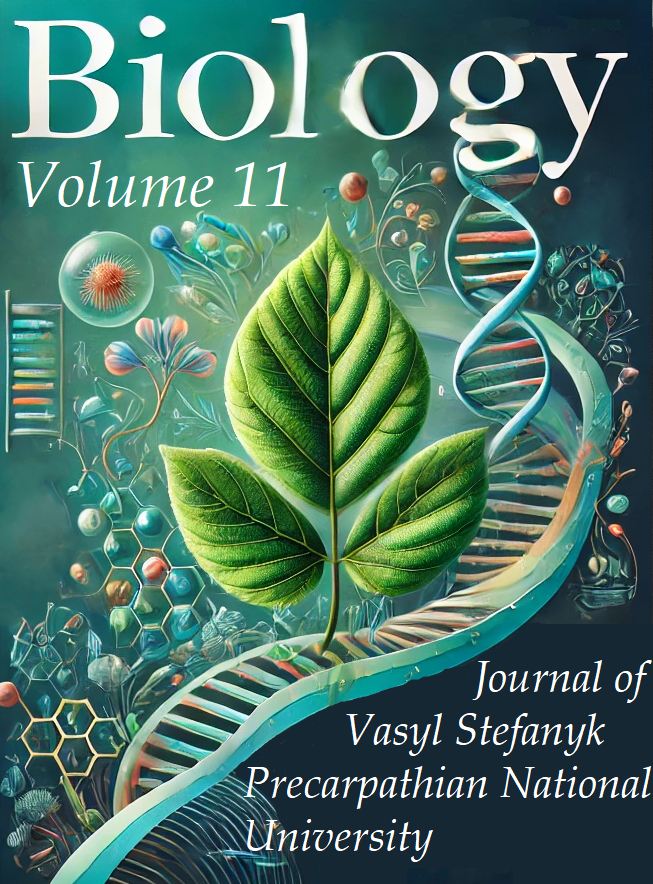Broccoli sprouts modulate the effect of carbohydrates on Drosophila pupation: acceleration on high-sugar diets, delay on low-sugar diets
Keywords:
broccoli sprouts, fruit fly, functional food, obesity, triacylglycerolsAbstract
Diet-induced obesity has become a global health concern, driving the search for effective preventive measures and functional food interventions. This study evaluates the potential of broccoli sprouts as a functional supplement to counteract the effects of an obesogenic diet in Drosophila melanogaster, a widely accepted model organism for studying metabolic diseases. The research examined the influence of broccoli sprout supplementation on larval pupation rates, adult fly body mass, and the content of proteins and triacylglycerols (TAGs) in adult flies. Larvae were fed diets with varying sucrose concentrations, with or without broccoli sprouts. Results showed that broccoli sprouts independently slowed larval development, irrespective of sucrose-induced delays. While no significant effects on body mass were observed in adult males, female flies exhibited reduced body mass in some broccoli-supplemented groups. Metabolically, TAG levels and protein content varied across diets, with high sucrose diets generally increasing TAG levels. However, broccoli sprouts mitigated some adverse metabolic changes, particularly in male flies on high-sucrose diets. These findings suggest that broccoli sprouts impact developmental timing in Drosophila and highlight their potential modulatory effects on metabolic markers associated with diet-induced obesity. The study underscores the need for further investigation into optimal doses and the underlying mechanisms of broccoli's bioactive compounds in mitigating obesity-related metabolic alterations. Future research should also address parameters such as food intake, survival rates, and oxidative stress markers to understand the broader implications of broccoli supplementation better.
References
Bayliak MM, Abrat OB, Storey JM, et al (2019) Interplay between diet-induced obesity and oxidative stress: Comparison between Drosophila and mammals. Comparative Biochemistry and Physiology Part A: Molecular & Integrative Physiology 228:18–28. https://doi.org/10.1016/j.cbpa.2018.09.027
Bayliak MM, Vatashchuk MV, Gospodaryov DV, et al (2022) High fat high fructose diet induces mild oxidative stress and reorganizes intermediary metabolism in male mouse liver: Alpha-ketoglutarate effects. Biochimica et Biophysica Acta (BBA) - General Subjects 1866:130226. https://doi.org/10.1016/j.bbagen.2022.130226
Bradford MM (1976) A rapid and sensitive method for the quantitation of microgram quantities of protein utilizing the principle of protein-dye binding. Analytical Biochemistry 72:248–254. https://doi.org/10.1016/0003-2697(76)90527-3
Demianchuk O, Butenko N, Gospodaryov D, Bayliak M (2023) Effects of Feeding with Non-Autoclaved and Autoclaved Fructose-Arginine Mixture on Stress Resistance of Drosophila Melanogaster. jpnu 9:15–24. https://doi.org/10.15330/jpnu.9.4.15-24
Hopkins RJ, Van Dam NM, Van Loon JJA (2009) Role of Glucosinolates in Insect-Plant Relationships and Multitrophic Interactions. Annu Rev Entomol 54:57–83. https://doi.org/10.1146/annurev.ento.54.110807.090623
Houghton CA (2019) Sulforaphane: Its “Coming of Age” as a Clinically Relevant Nutraceutical in the Prevention and Treatment of Chronic Disease. Oxidative Medicine and Cellular Longevity 2019:1–27. https://doi.org/10.1155/2019/2716870
Le TN, Luong HQ, Li H-P, et al (2019) Broccoli (Brassica oleracea L. var. italica) Sprouts as the Potential Food Source for Bioactive Properties: A Comprehensive Study on In Vitro Disease Models. Foods 8:532. https://doi.org/10.3390/foods8110532
Li YM, Chan HYE, Yao XQ, et al (2008) Green tea catechins and broccoli reduce fat-induced mortality in Drosophila melanogaster. The Journal of Nutritional Biochemistry 19:376–383. https://doi.org/10.1016/j.jnutbio.2007.05.009
Lushchak VI, Covasa M, Abrat OB, et al (2023) Risks of obesity and diabetes development in the population of the Ivano-Frankivsk region in Ukraine. EXCLI Journal; 22:Doc1047; ISSN 1611-2156. https://doi.org/10.17179/EXCLI2023-6296
Lyles JT, Luo L, Liu K, et al (2021) Cruciferous vegetables ( Brassica oleracea ) confer cytoprotective effects in Drosophila intestines. Gut Microbes 13:1921926. https://doi.org/10.1080/19490976.2021.1921926
Martins T, Leite R, Matos AF, et al (2022) Beneficial Effects of Broccoli ( Brassica oleracea var italica ) By-products in Diet-induced Obese Mice. In Vivo 36:2173–2185. https://doi.org/10.21873/invivo.12943
Mathews KW, Cavegn M, Zwicky M (2017) Sexual Dimorphism of Body Size Is Controlled by Dosage of the X -Chromosomal Gene Myc and by the Sex-Determining Gene tra in Drosophila. Genetics 205:1215–1228. https://doi.org/10.1534/genetics.116.192260
Mortazavi A, Ralston RA, Grainger EM, et al (2008) Cruciferous vegetables and bladder cancer. In: Watson RR, Preedy VR (eds) Botanical medicine in clinical practice, 1st edn. CAB International, UK, pp 278–292
Rovenko BM, Kubrak OI, Gospodaryov DV, et al (2015a) High sucrose consumption promotes obesity whereas its low consumption induces oxidative stress in Drosophila melanogaster. Journal of Insect Physiology 79:42–54. https://doi.org/10.1016/j.jinsphys.2015.05.007
Rovenko BM, Perkhulyn NV, Gospodaryov DV, et al (2015b) High consumption of fructose rather than glucose promotes a diet-induced obese phenotype in Drosophila melanogaster. Comparative Biochemistry and Physiology Part A: Molecular & Integrative Physiology 180:75–85. https://doi.org/10.1016/j.cbpa.2014.11.008
Semaniuk U, Gospodaryov D, Mishchanyn K, et al (2021) Drosophila insulin-like peptides regulate concentration-dependent changes of appetite to different carbohydrates. Zoology 146:125927. https://doi.org/10.1016/j.zool.2021.125927
Semaniuk UV, Gospodaryov DV, Feden’ko KM, et al (2018) Insulin-Like Peptides Regulate Feeding Preference and Metabolism in Drosophila. Front Physiol 9:1083. https://doi.org/10.3389/fphys.2018.01083
Yurkevych IS, Gray LJ, Gospodaryov DV, et al (2020) Development of fly tolerance to consuming a high-protein diet requires physiological, metabolic and transcriptional changes. Biogerontology 21:619–636. https://doi.org/10.1007/s10522-020-09880-0






